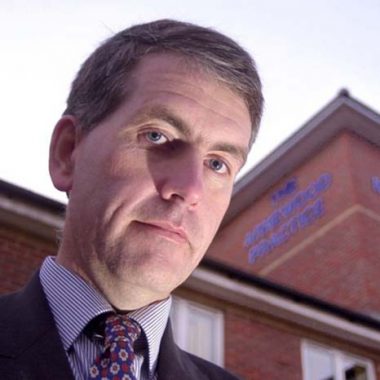Fifth of GPs intend to work with other practices to win enhanced services contracts

Exclusive More than one in five GPs are planning to form alliances with other practices when enhanced service contracts are put out to competition, amid warnings that single practice bids are being overlooked when services are put out to tender.
A Pulse survey of 400 GPs reveals that only 8% of practices in areas that may put enhanced services out to competition intend to bid for those services alone.
Some 22% of them said they planned to bid in conjunction with other practices, and 24% said that they would not bid at all.
The survey reveals that practices are heeding warnings that they need to work together in alliances, former provider companies or more formal federations to preserve their practice funding.
A Pulse investigation last month revealed that commissioners are removing millions of pounds worth of enhanced services from practices and putting them out to tender, while one CCG – Newham, in east London – has told practices they must federate if they wish to continue providing the services.
The survey comes as procurement experts and prominent GPs warned that single practices were likely to lose out when enhanced services are put out to competition.
There has been a big push for practices to collaborate, with GP leaders, CCGs and think-tanks all calling on practices to merge, federate or form ‘super practices’. Former chair of the RCGP, Professor Clare Gerada, recently claimed that smaller and single-handed practices would be unable to survive for much longer unless they worked together.
Related stories
Investigation: Competition leads practices to seek new alliances
Dr Simon Bradley: ‘At a national level, we get real economies of scale’
Local enhanced services worth millions to be opened up to competition from April
Dr Phil Yates, a GP and chair of the GPCare provider organisation – a federation of 100 practices in Bristol – said the ‘unremitting workload’ faced by individual practices means they needed to work together.
He said: ‘I don’t think it will be possible for individual practices to bid for and win CCG-wide contracts. There’s a danger we will lose out to pharmaceutical companies and even supermarkets.’
Tendering consultant Janet Roberts, director of Tendering for Care, said GPs were already missing out. She cited a recent council tender for an alcohol misuse service LES, for which two practices bid. ‘Neither was successful. There were over 80 bids, two from international companies, three from national companies and one from a charity.
‘[The practices] did not know what is required to tender. Local authorities won’t take the risk with GP practices unless they can prove they can do the job.’
Dr Nigel Watson, chair of the GPC commissioning subcommittee and Wessex LMC, said that his practice in Hampshire had already federated with two others.
He said: ‘This enables us to have a single practice manager between the three and to some extent share premises and back-office functions. We’ve also formed a provider company across the whole of the New Forest with 17 practices. This is because CCGs want bids to cover whole localities.’
About the survey: Pulse launched this survey of readers on 21 January 2013, collating responses using the SurveyMonkey tool. The 28 questions asked covered a wide range of GP topics, to avoid selection bias on any one issue. The survey was advertised to readers via our website and email newsletters, with a prize draw for a Samsung HD TV as an incentive to complete the survey.
As part of the survey, respondents were asked to specify their job title. A small number of non-GPs were screened out to analyse the results for this question. This question was answered by 369 GPs.











